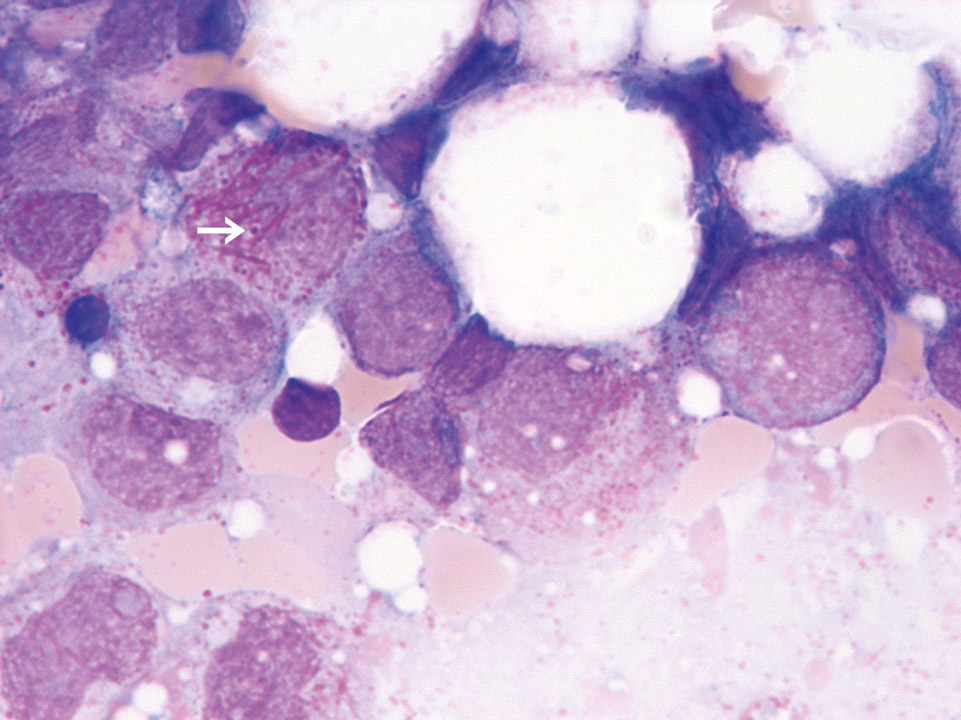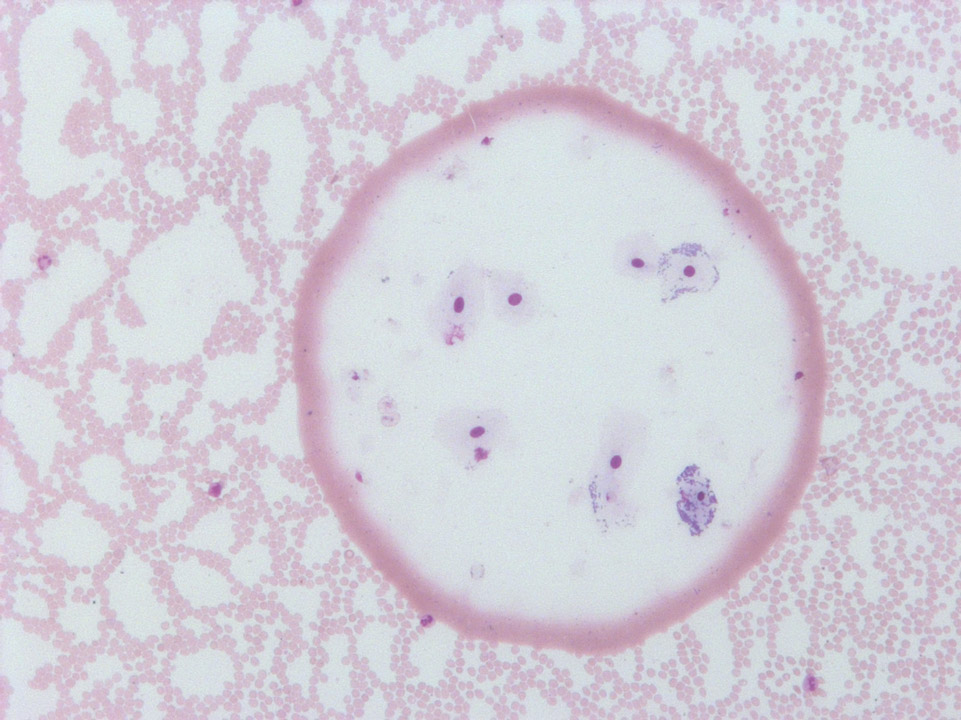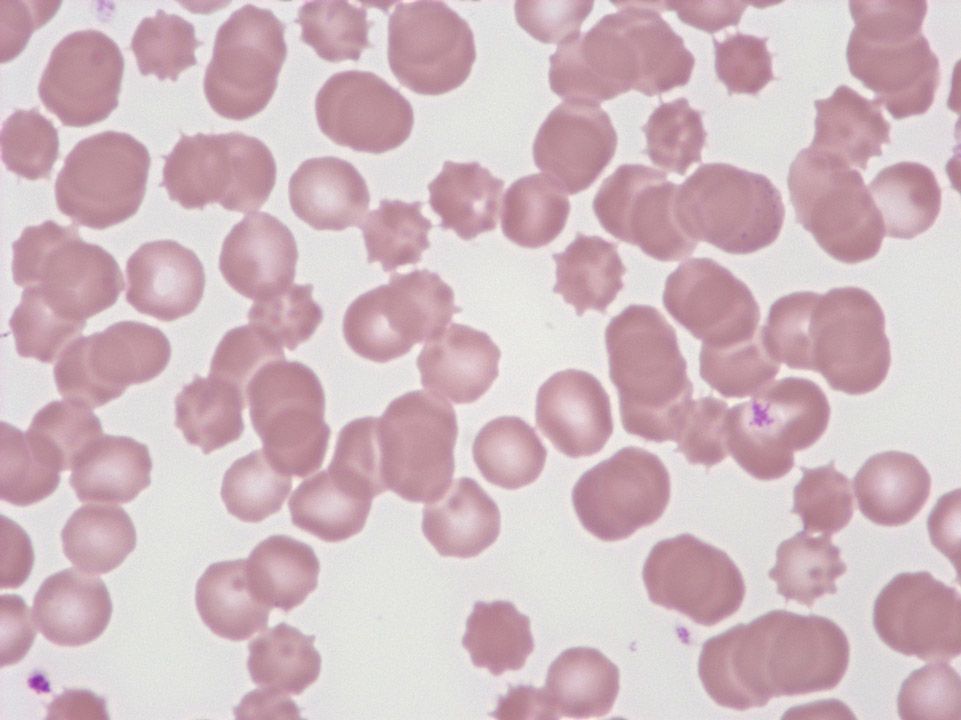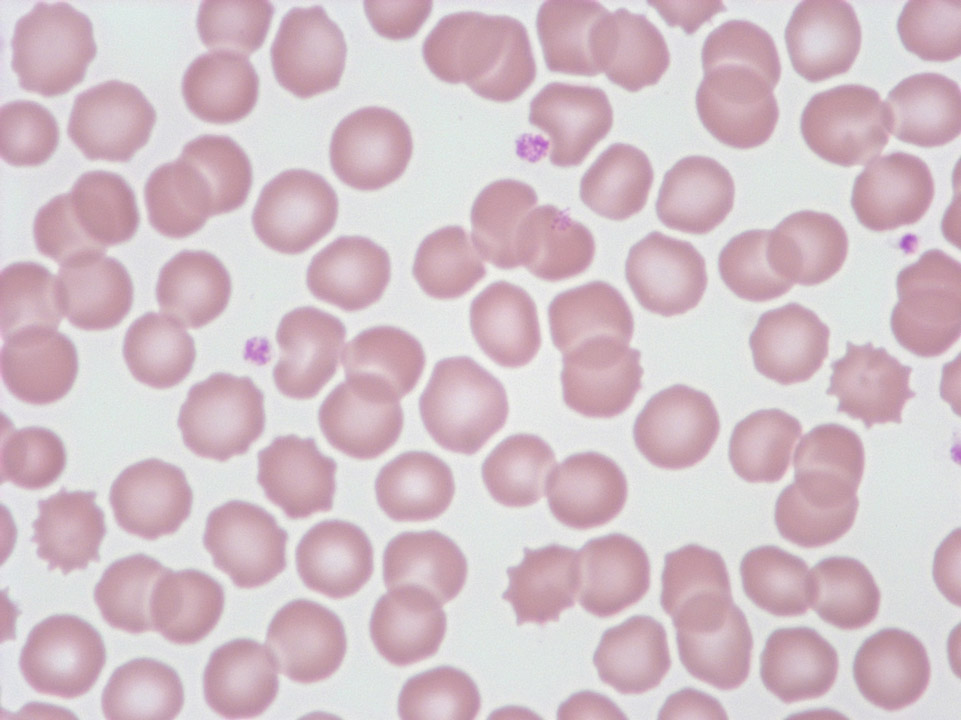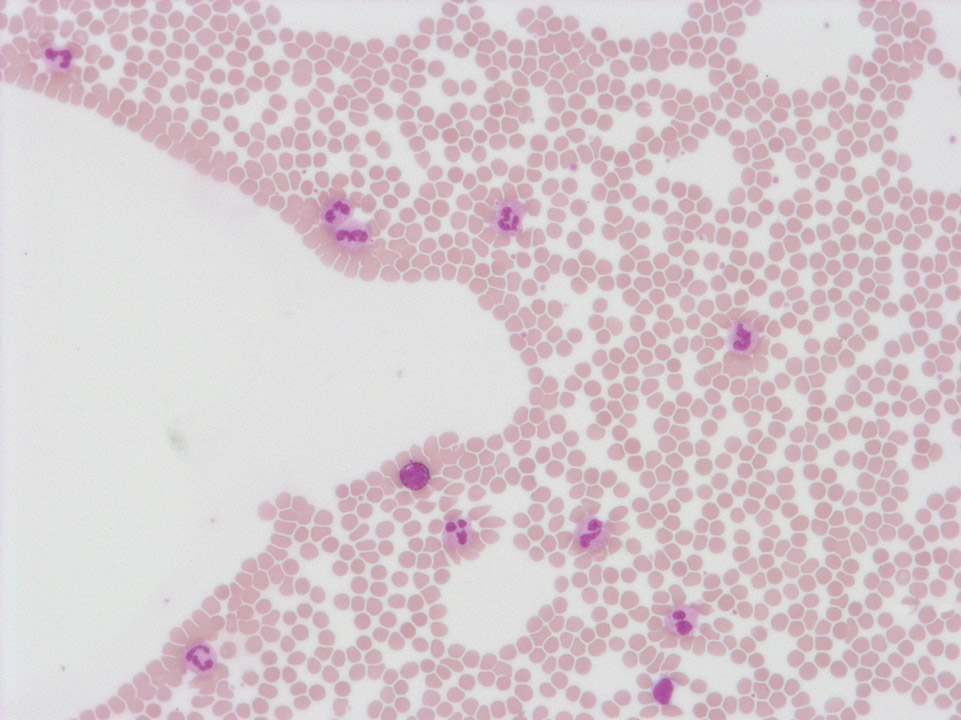Galerie obrázků
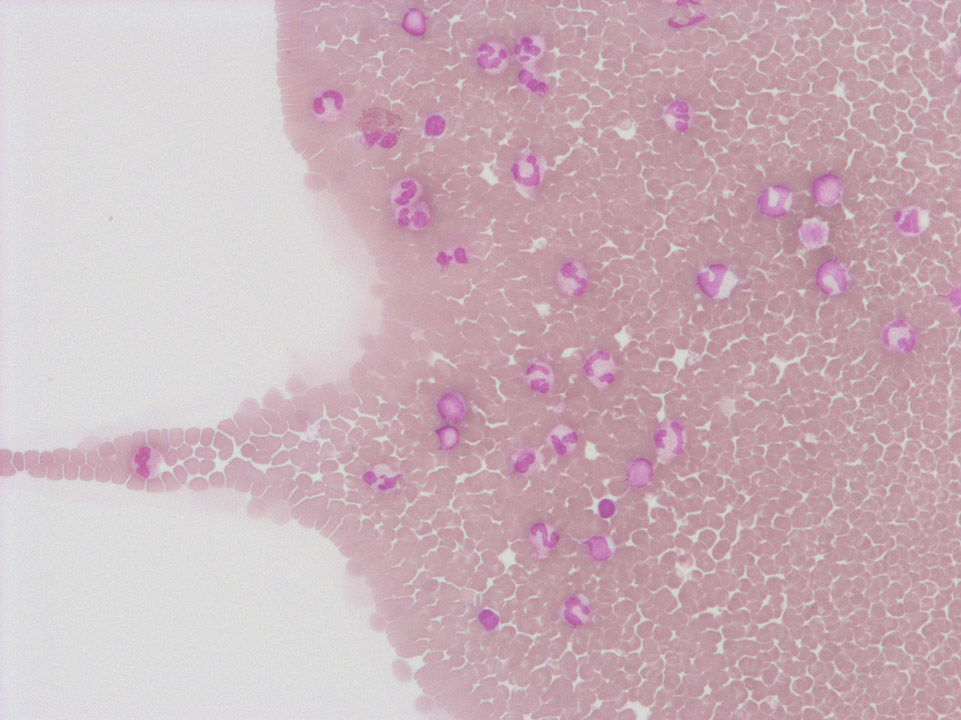
During the preparation of a large number of blood films for EQA purposes, the blood drop on the slide had already started to dry prior to smearing, so that, when the blood film was made, many white blood cells were pulled towards the edge, resulting in disturbed cell distribution.
<p>During the preparation of a large number of blood films for EQA purposes, the blood drop on the slide had already started to dry prior to smearing, so that, when the blood film was made, many white blood cells were pulled towards the edge, resulting in disturbed cell distribution.</p>
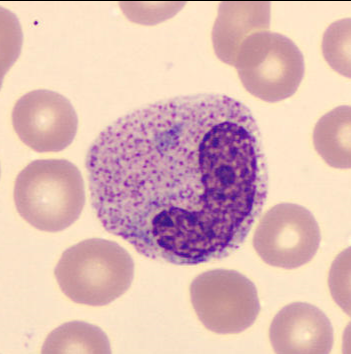
Doehle bodies were named after the German pathologist Karl Gottfried Paul Döhle (1855-1928). They are defined as light blue-grey oval inclusions with a diameter of 1 to 3 µm located in the peripheral cytoplasm of mature and immature neutrophils. The structures are seemingly derived from the rough endoplasmic reticulum and hence contain RNA. They are often present in conjunction with toxic granulation.
<p>Doehle bodies were named after the German pathologist Karl Gottfried Paul Döhle (1855-1928). They are defined as light blue-grey oval inclusions with a diameter of 1 to 3 µm located in the peripheral cytoplasm of mature and immature neutrophils. The structures are seemingly derived from the rough endoplasmic reticulum and hence contain RNA. They are often present in conjunction with toxic granulation.</p>
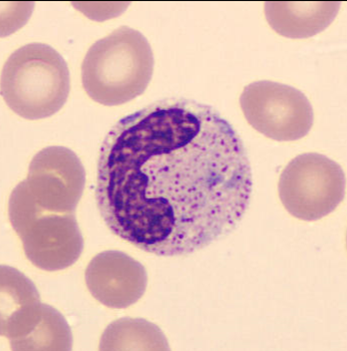
Doehle bodies were named after the German pathologist Karl Gottfried Paul Döhle (1855-1928). They are defined as light blue-grey oval inclusions with a diameter of 1 to 3 µm located in the peripheral cytoplasm of mature and immature neutrophils. The structures are seemingly derived from the rough endoplasmic reticulum and hence contain RNA. They are often present in conjunction with toxic granulation.
<p>Doehle bodies were named after the German pathologist Karl Gottfried Paul Döhle (1855-1928). They are defined as light blue-grey oval inclusions with a diameter of 1 to 3 µm located in the peripheral cytoplasm of mature and immature neutrophils. The structures are seemingly derived from the rough endoplasmic reticulum and hence contain RNA. They are often present in conjunction with toxic granulation. </p> <p> </p>
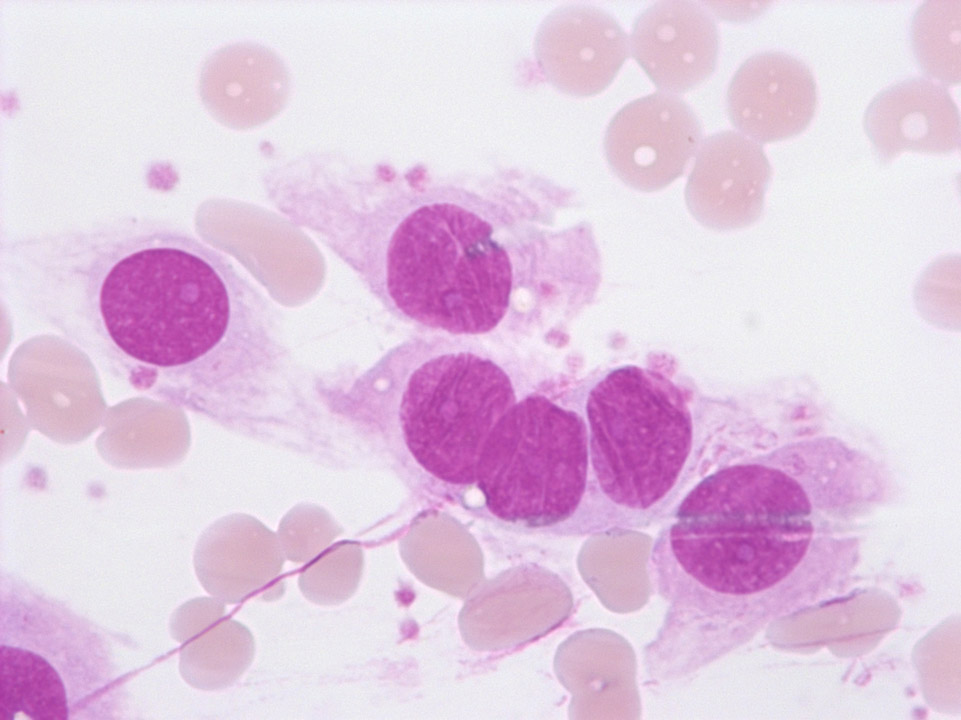
The endothelial cells are part of the vascular wall, which was damaged during venepuncture. (Blood coagulation was activated during the process: on the bottom left a fibrin fibre can be recognised.)
<p>The endothelial cells are part of the vascular wall, which was damaged during venepuncture. (Blood coagulation was activated during the process: on the bottom left a fibrin fibre can be recognised.)</p>
